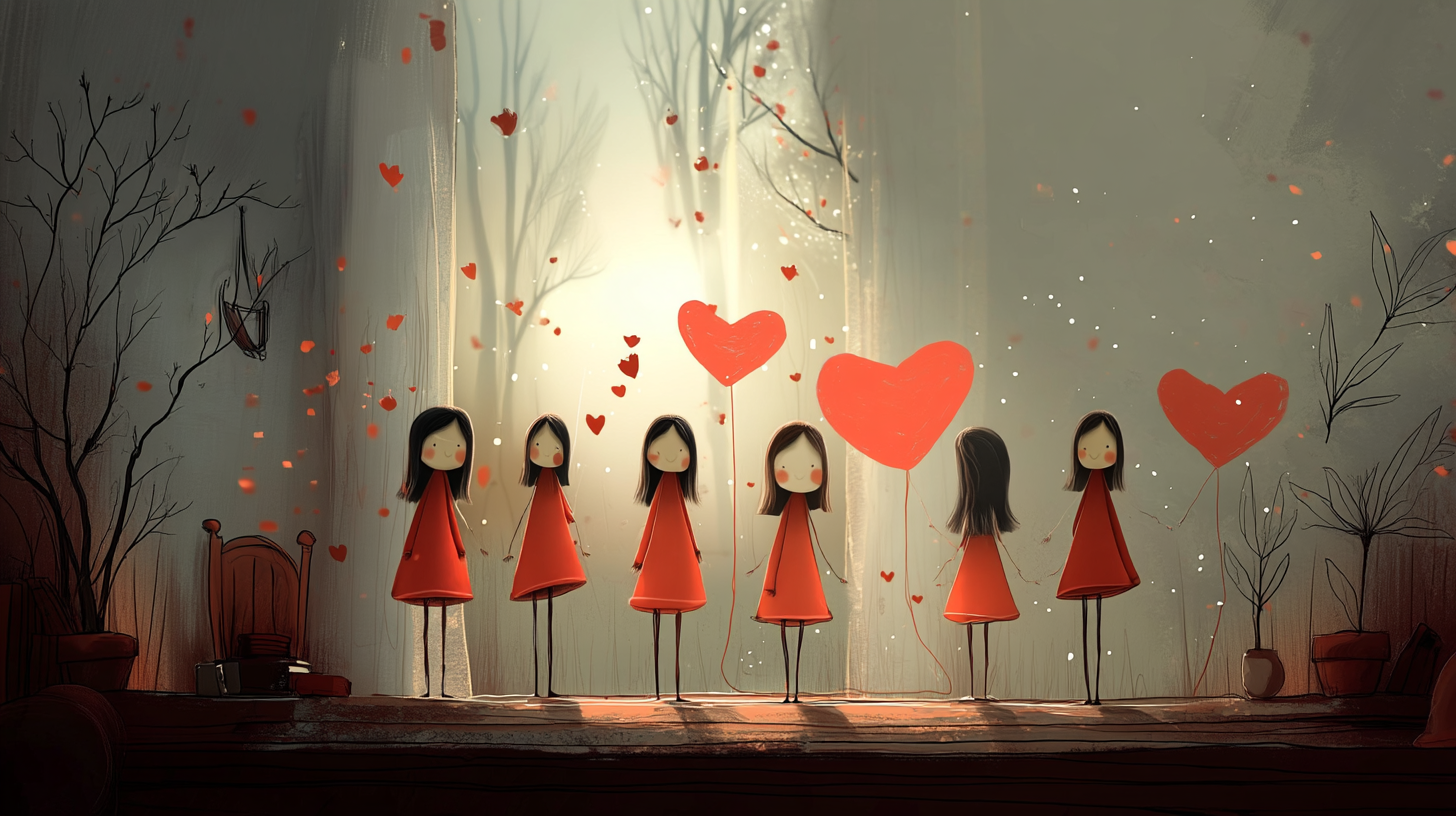A group of similar things close together
似たようなものがぎゅっと集まったまとまり
以下は英単語 “cluster” に関するストーリー型学習コンテンツです。まずは大枠の意味を理解して最後の文章で確認しましょう。
主な意味(main meaning)
| 品詞 | 意味(簡潔) | 発音記号 | 英語例文 |
|---|---|---|---|
| 名詞 | 似たものが集まったかたまり | /ˈklʌstər/ | A cluster of stars was visible in the night sky. |
| 動詞 | 集まる、集める | /ˈklʌstər/ | People clustered around the famous actor. |
語源(etymology)
古英語 clyster(塊、集まり)に由来し、同じ性質のものが「ぎゅっと集まる」イメージを持つ。
類義語(synonyms)
| 類義語 | 英文例文 |
|---|---|
| bunch | She gave me a bunch of flowers. |
| group | A group of friends went hiking together. |
| collection | He has a collection of rare stamps. |
| cluster | The grapes grew in tight clusters. |
| bundle | He carried a bundle of clothes. |
反義語(antonyms)
| 反義語 | 英文例文 |
|---|---|
| individual | Each individual brought a unique idea. |
| scatter | The birds scattered when the dog ran in. |
コロケーション(collocations)
| コロケーション | 英文例文 |
|---|---|
| a cluster of stars | We saw a cluster of stars through the telescope. |
| a cluster of buildings | The village had a small cluster of buildings. |
| a cluster of cases | There was a cluster of flu cases last week. |
| cluster together | The children clustered together in the cold. |
2項表現(binomials)
| 2項表現 | 英文例文 |
|---|---|
| bits and pieces | He kept bits and pieces of his childhood toys. |
| odds and ends | She packed all the odds and ends into a box. |
英語ストーリー(english story)
Title: A Mysterious Cluster
Tom works at a small observatory. One night, while checking the sky with a telescope, he saw a cluster of lights moving quickly. “It must be a cluster of stars,” he thought. But as he looked closer, he noticed they were not natural. He called his group of colleagues, and they all clustered around the telescope.
“Maybe it’s a collection of drones,” said Emma. “Or a bunch of balloons,” added John. But nothing made sense. The lights were moving in perfect lines.
After a few minutes, the lights scattered and disappeared. Everyone was amazed. “Each light seemed like an individual object,” Tom said.
Back at home, Tom wrote everything in his journal. He included details about the cluster, how people clustered together, and the sudden scatter. He ended with, “I only saw bits and pieces, but I hope to find more next time.”
和訳
タイトル:不思議なかたまり
トムは小さな天文台で働いています。ある夜、望遠鏡で空を観察していると、素早く動く光の**cluster(かたまり)**を見つけました。「**cluster of stars(星のかたまり)**だろう」と彼は思いました。でもよく見ると、自然のものには見えませんでした。
彼は同僚の**group(集団)を呼び、みんなが望遠鏡のまわりにclustered(集まり)**ました。
「ドローンの**collection(集まり)かもしれない」とエマが言いました。「風船のbunch(束)**かも」とジョンが言いました。でもどれも当てはまりません。その光は完璧な列で動いていました。
数分後、その光は**scattered(ばらばらに)なって消えました。みんな驚きました。「それぞれの光がindividual(個別の)**に見えた」とトムが言いました。
家に帰ったトムは、日記にその体験を記録しました。光の**cluster(かたまり)や、みんながどうclustered together(集まった)か、そして急にどうscatter(ばらけた)**かを詳しく書きました。最後に「**bits and pieces(断片)**しか見られなかったけれど、次回はもっと見つけたい」と締めくくりました。
Q&A
「cluster」と「bunch」の違いは何ですか?
どちらも「まとまり、束」という意味がありますが、「bunch」は主に日常的なもの(花、ぶどう、カギなど)に使います。一方「cluster」は、より形式的で、自然や科学的な対象(星、病気の症例、データなど)に使われやすいです。
「cluster」と「group」の違いは何ですか?
「group」は最も広い意味を持ち、物・人・動物などの集まり全般に使えます。「cluster」はその中でも、似たものが近くにぎゅっと集まっている様子を強調します。空間的に密集しているイメージです。
「cluster」と「collection」の違いは何ですか?
「collection」は自分の意思で集めたもの(切手、コイン、本など)に使うのが一般的です。「cluster」は自然にできたかたまりや、偶然にできた集まりに使われます。
「cluster」と「bundle」の違いは何ですか?
「bundle」は「ひもやロープでくくったまとまり」によく使われます(例:bundle of newspapers)。一方「cluster」は、くくられていなくても、自然に集まっている状態を表します。
「cluster」と「scatter」の違いは何ですか?
「cluster」は「集まる」、つまり密集している状態を表します。「scatter」はその反対で、「ばらばらに散る」ことを意味します。意味としては反対語の関係です。
「cluster」と「individual」の違いは何ですか?
「cluster」は複数のものが集まってできるかたまりです。「individual」はそれぞれの「1つ1つのもの」を指します。意味的に対照的で、「全体」と「部分」のような関係です。
「cluster」と「a cluster of stars / buildings / cases」のような表現はどう違うのですか?
「a cluster of ~」という形で使うことで、特定のもの(星、建物、症例など)が密集していることを具体的に示します。「cluster」単体では一般的なかたまりの意味ですが、後ろに名詞をつけることで、その内容がはっきりします。



コメント